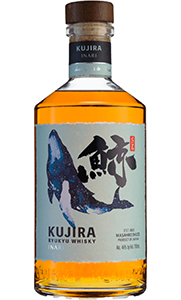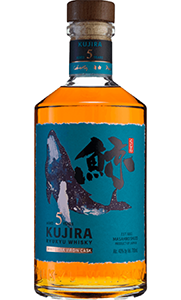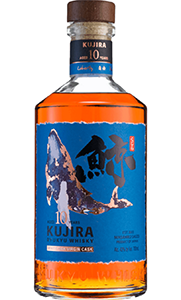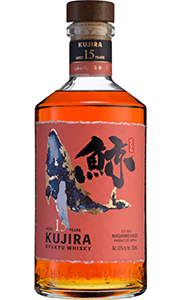I had the opportunity to sit down with Nikki Knights, who is importing the Kujira range of Japanese Whiskies into Australia. Together we explored the 5, 10 and 15 year old expressions from Okinawa, Japan. What makes this range truly stand out is that it isn’t made from barley, corn or rye, but from rice — opening the door to a very different take on Japanese whisky.
The Masahiro Distillery and Okinawa
The Kujira range is produced at Masahiro Distillery, founded in 1883 on the island of Okinawa — sometimes called “the Hawaii of Japan” for its subtropical climate. Masahiro is historically known for producing awamori, a rice spirit unique to Okinawa, often described as “sake on steroids” thanks to its syrupy richness. Over generations the distillery has expanded into making gins, sake, and in recent decades, whisky.
Okinawa’s hot, humid climate accelerates maturation in the cask, allowing even younger whiskies to show a depth of flavour you might expect from much older Scotch.
How Kujira Whisky is Made
Unlike malt whisky, Kujira is distilled entirely from indica rice. The fermentation uses black koji, a type of fungus common in Japanese food production, instead of the more familiar yeast strains. The spirit is then distilled in copper stills and initially matured in virgin American white oak.
If the use of rice has you thinking this is not a whisky, it’s worth noting that whisky can be made from seven different grains: barley, corn, rye, wheat, oats, quinoa, and rice. As long as the spirit is fermented, distilled, and matured in oak for the required period, it qualifies as whisky. While rice whiskies may feel unusual to those used to malt, rye or corn based whiskies, they are undeniably part of the whisky family.

The Kujira Range
Kujira Inari (not tasted in this review)
Although we didn’t try it on the day, the Inari is the entry-level Kujira expression, aged 3–4 years. It offers notes of minerality, seashells, and acidity — lighter and fresher than the longer-aged whiskies, and has recently become a popular option at festivals and events in Asia.
Kujira 5 Year Old
On the nose, the 5 year old showed a light sake-like quality, but the palate was quite different — earthy, creamy, and textured with an oily mouthfeel. Despite being fully matured in virgin oak, it avoided the tannic “matchstick” bitterness that can overwhelm malt whiskies in new wood. Instead, it struck a balance between oak spice and the underlying rice sweetness. Nikki mentioned how this expression pairs well with food, from steak tartare to miso-glazed eggplant.


Kujira 10 Year Old
The 10 year old took that creaminess to the next level. Soft, smooth, and wonderfully rounded, it felt like a “warm blanket in your mouth.” Notes of honey, cinnamon, and oak were joined by a unique sweetness reminiscent of sake, though more restrained than in the 5 year old. Nikki described flavours of chocolate Scotch finger biscuits, caramel, and hazelnuts, with a lingering oily coating on the palate. This was an elegant, easy-drinking whisky that still held plenty of complexity.
Kujira 15 Year Old
Finished partly in oloroso sherry casks, the 15 year old added layers of richness. On the nose there was Christmas cake, toffee, and honeyed pear, with an herbal, green oak note in the background. On the palate it was buttery and full-bodied, with dried fruit, spice, and a shifting complexity that changed with every sip — and even more when paired with cheese. This was the most complex whisky of the trio, evolving constantly in the glass.

Final Thoughts
Kujira is unlike any other Japanese whisky I’ve tried. It’s creamy, complex, and layered, yet distinctly different from Scotch or the malt whiskies Japan is best known for. These whiskies feel like what Japan would have created if it had invented whisky independently, without any influence from Scotland.
For me, that makes Kujira not just a curiosity, but a truly exciting branch of the whisky world.
📌 In Australia, the Kujira range can be purchased wholesale by bars, restaurants and retailers through Minleki, and individually through WineWoman.com.au.

